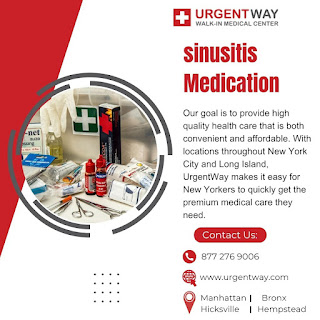How often should I follow up with my healthcare provider to monitor the progress of my psoriasis treatment?
How often should I follow up with my healthcare
provider to monitor the progress of my psoriasis treatment?
Before delving into the importance of follow-up
sessions, it is essential to understand the different psoriasis treatment
options. Topical treatments, phototherapy, oral medications and biological
therapies are some of the options. Each therapy technique focuses on different
components of the immune system or skin cell proliferation to relieve symptoms
and reduce inflammation.
Evaluation
of treatment effectiveness: Regular follow-up appointments allow
healthcare professionals to evaluate the effectiveness of the chosen treatment.
They can evaluate the effectiveness of the medication in controlling symptoms
such as redness, peeling, and itching.
Monitor
side effects: Certain psoriasis treatments,
particularly systemic and biologic medications, may have potential side effects
or dangers. Follow-up appointments allow healthcare professionals to check and
manage any adverse responses when they occur.
Adjust
the treatment plan: Not all therapies are the same for
everyone and the effectiveness of a treatment can change over time. Follow-up
visits allow healthcare professionals to make necessary changes to the
treatment plan, such as modifying medications or dosages, to better control the
disease.
Complication Prevention: Psoriasis is linked to a variety of
conditions, including psoriatic arthritis, cardiovascular disease, and mental
health difficulties. Regular follow-up enables healthcare providers to detect
these issues and intervene early to avoid their onset or worsening.
Frequency
of Follow-Up Visits:
The
frequency of follow-up visits to assess the progression of psoriasis treatment
may vary depending on numerous factors, including:
Psoriasis Severity: Patients with
severe or rapidly advancing psoriasis may require more frequent follow-up
visits at first to closely assess their response to treatment.
The sort of treatment employed can also affect the frequency of follow-up
visits. For example, those using phototherapy may require regular visits to
optimize exposure periods, but those taking systemic drugs may require
monitoring for potential side effects.
Individual Response to Treatment:
Some people may respond well to treatment, with major improvements in their
symptoms, whereas others may require changes or other therapies. The number of
follow-up visits can be changed dependent on an individual's response to
treatment.
Patient Involvement in
Follow-Up Care: Active involvement and discussion with healthcare
practitioners are critical for improving psoriasis treatment outcomes. Patients
should:
Keep Track of Symptoms: It is
beneficial to keep track of psoriasis symptoms, including their intensity,
frequency, and any changes that have occurred after beginning treatment.
Report Side Effects: If a patient
experiences any side effects or bad reactions to treatment, they should
immediately notify their healthcare professional. This enables the timely
examination and management of these concerns.
Follow Treatment Instructions:
Following the prescribed treatment regimen as directed by your healthcare
practitioner is critical for attaining the best results. Patients should follow
the advice for drug use, lifestyle changes, and any other recommendations made.
Procedural
Expertise In Skin Treatment:
At UrgentWay, our healthcare providers are equipped to
perform various medical examinations and skin procedures related to skin
disorders, UV damage, and aging. We offer allergy testing, which involves
pricking the skin with a small amount of an allergen to determine if a reaction
occurs. Additionally, we provide photodynamic treatment (PDT), a type of light
therapy that can be used to treat acne and other skin disorders by eliminating
germs. Our providers can also remove skin cysts through drainage or a minimally
invasive procedure. Our knowledgeable health professionals will review your
health and advise you on preventative care and good lifestyle choices.
Skin
Treatment At UrgentWay Walk-In Clinic:
You may also have skin treatments to improve skin
texture and tone, as well as to reduce the appearance of wrinkles and scars.The
symptoms and severity of skin problems vary widely. They might be transitory or
permanent, and they can be unpleasant. Some are caused by environmental
factors, while others may be inherited. Some skin disorders are trivial, while
others can be fatal.
Conclusion:
Regular follow-ups with a healthcare professional are
essential for effectively controlling psoriasis and tracking treatment results.
These meetings enable for continuous evaluation of therapy efficacy, monitoring
for side effects, adjusting treatment plans as needed, and preventing problems.
Individuals with psoriasis can improve their quality of life by actively
participating in follow-up care and communicating openly with their healthcare
team.




Comments
Post a Comment